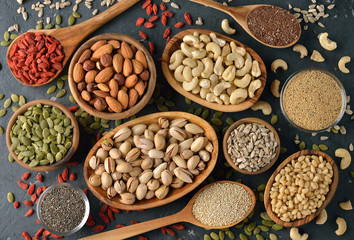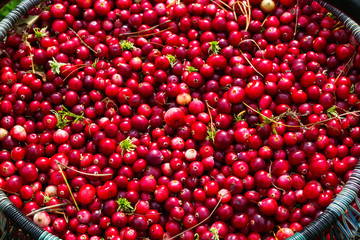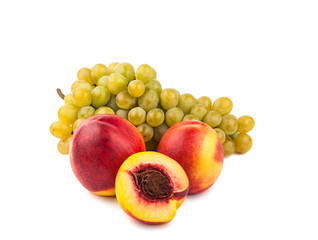No Products in the Cart
Written by: Amy Jade
Phytochemicals. A complicated name, but what are they exactly? Phytochemicals are chemicals produced by plants that have a wide variety of different functions. There exist tens of thousands of different phytochemicals, all with a different purpose. Each plant derives its unique characteristics of color, flavor, texture, and aroma because of these phytochemicals. They can help plants resists against fungi, bacteria or viral infections, but they also can provide a range of benefits for humans. Below are five ways that phytochemicals have been shown to benefit humans. And if you're even more curious about the plant power of phytochemicals, ask a trained dietician today.



Antioxidants are substances that prevent oxidation, which is a chemical reaction that produces free radicals. Free radicals may play a role in heart disease, cancer, the aging process, and other conditions. By eating a healthy diet and increasing the amount of antioxidants in your body, many of these diseases can be preventable. Phytochemicals that have antioxidant activity include allyl sulfides (found in onions, leeks, and garlic), carotenoids (found in carrots, tomatoes, and peppers), and flavonoids (found in teas, berries, and kale).
Some phytochemicals are actually hormones themselves, like melatonin (found in pistachios, black rice, and peppers). Others are similar to hormones, like phytoestrogens (found in broccoli, soy, and oranges). Many phytochemicals interact with hormones like indoles and glucosinolates (found in cabbage, cauliflower and brussels sprouts) which are found to minimize the amount of cancer-related hormones produced in the body.

Phytochemicals can be like your mom, protective and making sure you don't get sick. Phytochemicals prevent foreign invaders from attaching to our cell walls, including the urinary tract. Proanthocyanidins, found in cranberries, are a great source of phytochemicals that prevent the invasion of pathogens that cause urinary tract infections.

Phytochemicals assist in immune support and strengthening our body's defense mechanisms. They are able to directly interact with the army of immune chemicals in our body. The flavonoid family (such as grapes, peaches, and kidney beans) are known to be one of the best immune supporters.



Phytochemicals collaborate with the nervous system including dietary neurotransmitters. Such neurotransmitters (signaling/communication molecules) consist of GABA (found in peas, tomatoes, and buckwheat), serotonin (found in pomegranates, potatoes, and hazelnuts), and dopamine (found in bananas, avocados, and eggplants).
Phytochemicals are not necessarily critical to human survival. But they definitely contribute to improving someone from simply 'surviving' and going through the motions, to someone who is 'thriving' and enjoying each day to the fullest potential. By consuming a diet filled with phytochemicals, you can notice your mood, energy, and happiness improving. Try it out sometime!
References
Leitzmann C. (2016). Characteristics and Health Benefits of Phytochemicals. Forschende Komplementarmedizin (2006), 23(2), 69–74. https://doi.org/10.1159/000444063
Rossi, M. (2022) How to Eat More Plants: Transform Your Health with 30 Plant-Based Foods Per Week (and Why It’s Easier Than You Think)